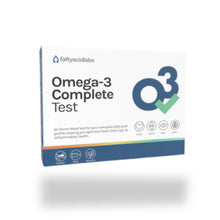
What is Omega-3? Benefits for Heart, Brain and Oral Health
Omega-3 and Health Benefits Oral Health
Omega-3 fatty acids are essential polyunsaturated fats that the body cannot produce on its own. Therefore, we must obtain them through diet or supplements. These fatty acids play a central role in both general and oral health .
Omega-3 and Oral Health: An Unexpected But Important Link
Many people know about the effect of omega-3 on the heart, but few know that omega -3 also has a positive effect on oral health .
How Omega-3 Protects Gums
Gum diseases such as gingivitis and periodontitis are often caused by chronic inflammation. Omega-3s – particularly EPA and DHA – have documented anti-inflammatory properties that help reduce inflammation in the gums .
A study of over 9,000 adults showed that higher DHA intake was linked to lower incidence of periodontitis. Additionally, a 2022 clinical study showed that patients with gum disease who took omega-3 supplements experienced greater improvement in gum health than those who did not take omega-3 supplements.
Omega-3 as Antibacterial Protection
Research shows that omega-3s can inhibit harmful bacteria in the mouth. This can help prevent cavities and infections , as well as speed up healing after dental procedures such as extractions or implants.
Frequently Asked Questions about Omega-3 and Oral Health
1. Does fish oil cause bad breath?
No
2. Does omega-3 increase the risk of bleeding?
A 2024 study debunks this myth – omega-3 does not increase the risk of bleeding in normal doses.
How to Promote Oral Health with Omega-3
For optimal oral health, combine good oral hygiene with conscious dietary choices:
-
Brush your teeth twice daily
-
Use dental floss
-
Visit the dentist regularly
-
Include Omega-3 in the diet
Summary
Omega-3 is a key component for both general and oral health . By reducing inflammation, fighting bacteria, and supporting tissue repair, Omega-3 can help you maintain healthy gums and a strong body.
The main types of Omega-3
-
ALA (Alpha-linolenic acid) – found in plant-based sources such as chia seeds, flax seeds, walnuts and canola oil. However, ALA is only converted in very small amounts to the more active forms EPA and DHA.
-
EPA (Eicosapentaenoic acid) – found mainly in fatty fish and fish and algae oil.
-
DHA (Docosahexaenoic Acid) – a critical fatty acid for brain, eye and heart function. Also found in fatty fish and Omega-3 supplements.
- DPA (Docosapentaenoic Acid) - enhances the effect of EPA
Omega-3: Important Health Benefits
Getting enough omega-3 can help to:
-
Lower triglyceride levels
-
Reduce blood pressure
-
Counteract inflammation
-
Strengthen cardiovascular health
-
Support brain function and memory
-
Improve joint health and recovery
-
Protect eye health
-
Supporting fetal development during pregnancy
-
Promote mental well-being
Want to delve deeper into the research? Read more at www.omegaquant.com






